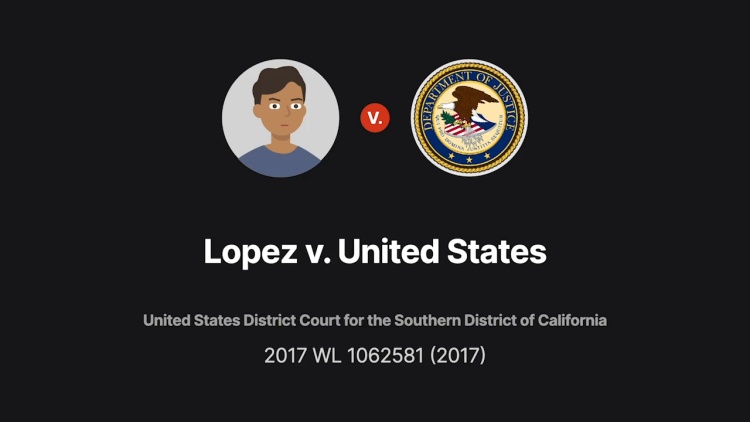Lopez v. United States
United States District Court for the Southern District of California
2017 WL 1062581 (2017)
- Written by Sara Adams, JD
Facts
A workplace fatality occurred on a United States Navy ship when a contractor fell to his death through a gap at the end of an elevator platform. A ramp lowered and covered the gap when the elevator was raised. Anakaren Lopez (plaintiff) sued the United States government (the government) (defendant) in federal district court, arguing that the death was due to the government’s negligence. Lopez’s attorney had previously inspected the ship once but requested a second inspection. The district court denied the request. Lopez’s attorney raised a new argument in support of a second inspection, and the district court referred the matter to a magistrate court. Lopez’s attorney argued that he had not seen the ramp in person and did not know how much of the gap the ramp blocked. Lopez’s attorney argued that the diagrams and photographs provided during discovery were unhelpful and that he could not accurately reconstruct the accident. Lopez’s attorney argued that he had an absolute right to view the ramp in person and determine whether the lowered ramp could have prevented the fall. The government asserted that the lowered ramp fully covered the gap because forklifts drove across it. The government offered to stipulate that the contractor died by falling through the gap and that the ramp was not lowered because if the ramp had been lowered, the gap would be entirely blocked.
Rule of Law
Issue
Holding and Reasoning (Gallo, J.)
What to do next…
Here's why 899,000 law students have relied on our case briefs:
- Written by law professors and practitioners, not other law students. 47,000 briefs, keyed to 994 casebooks. Top-notch customer support.
- The right amount of information, includes the facts, issues, rule of law, holding and reasoning, and any concurrences and dissents.
- Access in your classes, works on your mobile and tablet. Massive library of related video lessons and high quality multiple-choice questions.
- Easy to use, uniform format for every case brief. Written in plain English, not in legalese. Our briefs summarize and simplify; they don’t just repeat the court’s language.







